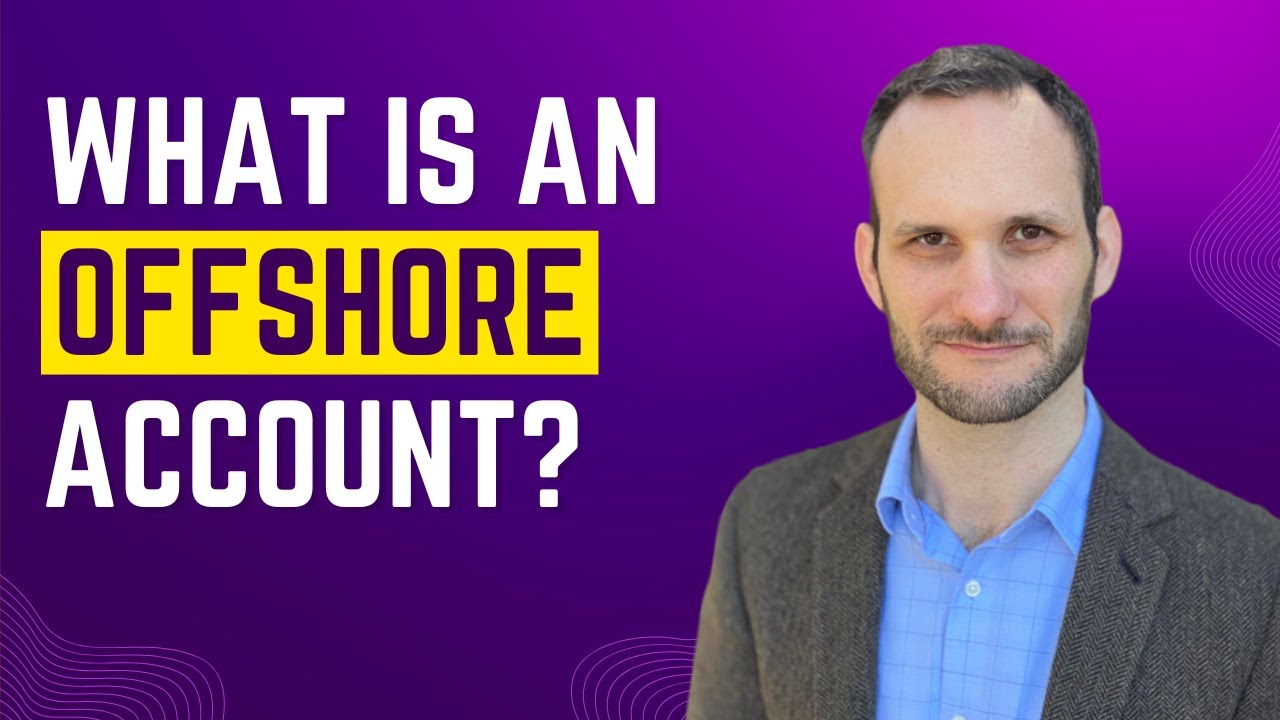Offshore Bank Account Guide
What Is an Offshore Bank Account?
An offshore bank account is a financial account held at a bank outside of the United States.
Offshore accounts are used for asset protection, international investing, and managing foreign currency. While commonly associated with privacy, they are legal for U.S. citizens as long as they are properly disclosed to the IRS.
Offshore accounts are often part of broader planning strategies involving trusts or LLCs to shield assets from lawsuits and limit creditor access.
How Does Offshore Banking Work?
An offshore bank account can hold U.S. dollars or foreign currency and may be used to hold cash, securities, or other financial instruments. Offshore banking is commonly used by individuals with international business interests or those seeking to protect assets from lawsuits.
Opening an offshore bank account does not mean avoiding taxes. U.S. citizens and residents must disclose offshore accounts and report worldwide income to the IRS.
People use offshore accounts to:
- Separate personal assets from the U.S. legal system
- Reduce risk from political or economic instability
- Protect funds from future creditors
- Maintain financial privacy
- Simplify international transactions
The most protected offshore accounts are with banks that do not have branches in the U.S. This ensures they remain outside U.S. legal authority.
Offshore Bank Accounts and Asset Protection
Offshore bank accounts offer stronger protection than U.S. accounts because a U.S. judge cannot easily freeze or seize funds held abroad. A judgment creditor would need to pursue collection in the foreign jurisdiction, often facing high legal hurdles.
The strongest asset protection comes from combining an offshore bank account with an offshore trust. The trust owns the account, and the trustee—located outside the U.S.—is not subject to U.S. court orders.
A well-structured offshore trust can protect funds from lawsuits while remaining in full compliance with U.S. tax laws.
Are Offshore Bank Accounts Legal?
Yes, offshore bank accounts are legal if properly reported. They are not tax shelters, and using them to evade taxes is illegal. Most clients who open offshore accounts are not trying to hide money—they are trying to protect it.
In many cases, a U.S. court cannot compel a foreign bank or foreign trustee to turn over offshore funds. But the account must be properly disclosed to the IRS to remain in compliance with U.S. law.
Risks of Offshore Banking
Offshore accounts are not risk-free. Risks include:
- Choosing an unstable or poorly regulated jurisdiction
- Working with banks that do not follow proper compliance standards
- Facing penalties for failure to report accounts properly
Most risks can be avoided by working with experienced legal counsel and using banks in trusted jurisdictions.
How to Open an Offshore Bank Account
Opening an offshore bank account typically requires:
- A valid passport
- Proof of address
- Source of funds documentation
- Sometimes in-person visits or notarized documents
Many offshore banks now require that the account be opened through a foreign legal entity, such as an LLC or trust.
Our clients often begin by creating a Cook Islands trust and using that trust to open a secure offshore account. This structure adds a layer of protection that makes it nearly impossible for a U.S. court to force repatriation.
We help protect what you’ve earned.
Alper Law has helped clients with asset protection planning for for over 30 years. We develop creative, customized strategies to protect our clients from judgments and creditors.
Attorneys Jon Alper and Gideon Alper are nationally recognized as leading experts in offshore trust formation.

Garnishment of Offshore Bank Accounts
Some people with creditor concerns have significant amounts of cash held in U.S. banks or financial institutions. Bank accounts are an important focus of asset protection planning. A creditor that obtains a money judgment hopes to satisfy the judgment quickly, and seizing the judgment debtor’s liquid cash held in bank accounts is an attractive target.
Garnishment is the collection tool available to creditors to seize a debtor’s bank accounts. By serving a writ of garnishment on the debtor’s U.S bank the judgment creditor may freeze the account and subsequently take the money in the account to satisfy the judgment.
A creditor starts a typical bank garnishment by serving a writ of garnishment on the debtor’s bank, causing the bank to freeze the debtor’s accounts. The debtor then has an opportunity either to claim that the money in the account is exempt from legal process or to challenge garnishment procedures.
A court will order the bank to pay the money in the account to the creditor up to the amount of the judgment unless the court finds that the debtor’s money is protected from garnishment.
Garnishing an Offshore Bank Account Is Difficult
Several Florida cases have held that a Florida court may issue a writ of garnishment only against banks located within the court’s geographical jurisdiction. Even U.S. banks located outside of Florida, with no branches in Florida, are not subject to writs of garnishment issued by a Florida court.
No Florida court has ever permitted a writ of garnishment of an offshore bank account that does not have branches in the United States. Offshore bank accounts provide asset protection because the banks have no branches within the United States subject to any U.S. state or federal court jurisdiction.
To garnish a debtor’s foreign financial account, a creditor would have to first domesticate the U.S. judgment in the foreign country where the account was opened. Then, the creditor would have to hire a foreign attorney to enforce the newly domesticated judgment against the debtor’s foreign bank account. The process is possible only when the United States has an agreement with a foreign country regarding the reciprocity of judgments, but even then, the process is costly and complicated.
Many countries have no agreements with the U.S. regarding judgment reciprocity. These countries refuse to recognize U.S. judgments. These so-called asset protection countries are popular for offshore bank accounts. A creditor cannot use its U.S. judgment to garnish bank accounts in these asset protection countries.
Instead, the judgment creditor must start a new lawsuit in foreign courts under the country’s own laws and procedures to get a new judgment. Then the creditor with the new foreign judgment would have to find equitable remedies to prevent further movement of the money.
Tip: We advise clients that judgment creditors rarely will take the time and effort to pursue a bank account garnishment in a foreign jurisdiction except for very large judgments
Advantages of Offshore Bank Accounts
There are three advantages of offshore bank accounts: (1) protect assets against domestic creditors, (2) ensure the ability to finance litigation, and (3) diversify in currency.
1. Asset protection.
Offshore banks are not subject to U.S. state court jurisdiction. A court cannot enter a garnishment order against a bank situated outside the United States.
Moving funds to an offshore bank provides substantial leverage in settlement negotiations. A creditor would need to decide whether it is worth the risk of substantial legal fees and time in pursuing funds deposited at an offshore bank account.
2. Ability to finance litigation.
People under threat of litigation from a federal agency, such as the DOJ, FTC, or SEC, can consider storing funds at an offshore bank to ensure their availability. One of the most powerful tools that a Federal agency wields is the ability to freeze the U.S. financial accounts of the defendant before the lawsuit begins.
Most offshore accounts would not be subject to an asset freeze entered by a U.S. court, allowing the defendant to still finance a legal defense.
3. Currency diversification.
With few exceptions, depository accounts at U.S. banks can only hold U.S. dollars. Offshore bank accounts, on the other hand, can often hold currencies of any type, allowing the depositor to diversify their cash holdings.
Often offshore banks will offer higher interest rates on deposits than domestic banks as well.

Offshore Bank Account vs. Offshore Trusts
Assets in an offshore bank account owned by a foreign LLC or trust are more protected than if the account were instead owned by the individual directly.
However, to obtain that added protection, the individual open must give up the direct control over the funds they would enjoy through direct ownership. Plus, an offshore LLC or trust is more expensive to set up and maintain.
Important: An offshore bank account should not be used for tax evasion and is ineffective in bankruptcy proceedings.
Costs of Offshore Banking
The cost of opening an offshore bank account depends on the specific bank and jurisdiction. Initial fees include an application fee and due diligence fee. Your U.S. attorney will also charge a legal fee for assistance in locating and setting up an offshore bank account.
Ongoing fees depend on the bank. The best offshore banks do not charge a percentage maintenance fee, which could eat into the savings. Instead, they charge per transaction, such as for incoming and outgoing wires.
FAQs about Offshore Bank Accounts
Below are our answers to some frequently asked questions that our clients ask us about offshore bank accounts.
Is it legal to have an offshore bank account?
There is nothing criminal about opening an offshore bank account. However, it is a crime to use an offshore account to avoid paying taxes or to attempt to shield funds from the U.S. government. Offshore banking should not be used for those purposes.
How much does it cost to open an offshore bank account?
A U.S. citizen can open an offshore bank account after establishing a foreign legal entity (trust, LLC, or corporation) and having the foreign entity open an entity account. Opening foreign trusts, LLCs, or corporations involves specialized legal work, and there are annual fees due to the foreign representative of the foreign entity.
It can be significantly less expensive, but more difficult, for an individual to open an account without a foreign entity. The bank will still likely impose a fee to conduct due diligence.
Can you open an offshore bank account online?
Some offshore banks solicit personal accounts online. There is no restriction against a U.S. citizen making an online application. These banks are relatively new, and their service and reliability are uncertain.
Opening an account at an offshore online bank is financially and legally risky, but may sometimes be worth the asset protection benefit depending on the individual circumstances. Learn more about asset protection planning.
Are offshore bank accounts safe?
Offshore bank accounts can safely protect a person’s cash deposits from U.S. judgment creditors. Many offshore bank accounts are highly regulated in foreign jurisdictions and are insured by prominent U.K. institutions.
Can anyone open an offshore bank account?
Most foreign banking institutions that offer accounts to U.S. citizens will require that the U.S. citizen be at least the age of 18. But just because someone can open an offshore bank account does not mean they should. In most circumstances, people should not investigate offshore banking unless they have a significant amount of capital and demand the most effective asset protection possible.
Do offshore bank accounts earn interest?
Some offshore banks pay interest in the currency of the foreign country where the bank is located.
What is the best country for an offshore bank account?
There is no one offshore bank that is best for all people, just as it is difficult to recommend the best U.S. bank. Practically, the best offshore bank is any financially sound bank that offers prompt customer service and that will accept you as their customer. There are banks in all asset protection jurisdictions that meet these requirements.
What is an offshore bank account?
An offshore bank account is held at a foreign financial institution outside the U.S. jurisdiction. These accounts can support various currencies and assets, including cash, securities, and digital holdings, and are often integrated into broader asset protection plans.
How does an offshore account protect assets from creditors?
Funds held offshore are harder for U.S. courts to access. Creditors would need to initiate separate legal proceedings in the foreign jurisdiction.
What documentation is required to open one?
Typical requirements include a valid passport, proof of address, and evidence of the source of funds. Some banks may also require notarized paperwork or in-person verification.
How does an offshore account differ from having an offshore trust own it?
An offshore account held by a foreign entity—such as a trust or LLC—offers stronger protection. The account is shielded under the entity’s legal structure, rather than directly owned by you.
What are the reporting requirements for U.S. taxpayers?
U.S. citizens and residents must report offshore accounts when their aggregate value exceeds $10,000 via FBAR (FinCEN Form 114), and may also need to file IRS Form 8938 under FATCA.
Sign up for the latest information.
Get regular updates from our blog, where we discuss asset protection techniques and answer common questions.










